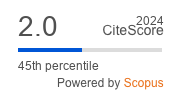Sustainability in the Italian hotel infrastructure: is it a priority for decision-makers?
DOI:
https://doi.org/10.23726/cij.2020.1058Keywords:
hospitality, sustainability, innovation, decision makingAbstract
This article investigates the sustainability in the Italian hospitality sector and the reasons why its infrastructure lacks on energetic and thermal efficiency despite the numerous solutions present in the market. The study is performed based on bibliographical research and a survey conducted with hotel managers and hotel real estate owners. It draws compelling conclusions about the main drivers to innovation and restructuring in the sector.
References
Aguado, E., & Holl, A. (2018). Differences of Corporate Environmental Responsibility in Small and Medium Enterprises: Spain and Norway. Sustainability, 10(6), 1877.doi:10.3390/su10061877
Asadi S., Pourhashemi S.O., Nilashi M., Abdullah R., Samad S., Yadegaridehkordi E., Aljojo N. & Razali N.S. (2020). Investigating influence of green innovation on sustainability performance: A case on Malaysian hotel industry. Journal of Cleaner Production (258). doi:10.1016/j.jclepro.2020.120860
Baldwin, R., (1994), BREEAM [Building Research Establishment Environmental Assessment Method] BRE [Building Research Establishment] assessment method for buildings, Innovative housing '93, proceedings. Volume 1: Technology innovations.
Banwo, A.O. & Du, J. (2019). Workplace pro-environmental behaviors in small and medium-sized enterprises: an employee level analysis. J Glob Entrepr Res 9, 34. doi:10.1186/s40497-019-0156-4
Belicini L. & Toso F. (2016). Edifici tipo, indici di benchmark di consumo per tipologie di edificio ad uso alberghiero, applicabilità di tecnologie innovative nei diversi climi italiani. Report Ricerca di Sistema Elettrico, Accordo di Programma Ministero dello Sviluppo Economico. Available at: https://www.enea.it/it/seguici/pubblicazioni/edizioni-enea/2016/rapporto-annuale-efficienza-energetica-2016
Cassa Depositi e Prestiti S.p.A., TH Resorts & CDI Labs. (2019). Innovazione e hospitality: quali leve per la competitività del turismo in Italia?
Cui, Y. (Gina), Errmann, A., Kim, J., Seo, Y., Xu, Y., & Zhao, F. (2020). Moral Effects of Physical Cleansing and Pro-environmental Hotel Choices. Journal of Travel Research, 59(6), 1105–1118. https://doi.org/10.1177/0047287519872821
Daily B.F. & Huang S.C. (2001). Achieving sustainability through attention to human resource factors in environmental management. International Journal of Operations & Production Management, 21 (12), pp 1539-1552.
Federalberghi. (2020). DATATUR, Trend e statistiche sull’economia del turismo
Humbert, S., Abeck, H., Bali, N., & Horvath, A. (2007). Leadership in Energy and Environmental Design (LEED) - A critical evaluation by LCA and recommendations for improvement. International Journal of Life Cycle Assessment, 12(Special Issue 1), 46-57. Retrieved from https://escholarship.org/uc/item/01n0q8bx
ITP. (2017). Hotel Global Decarbonisation Report, Aligning the sector with the Paris Climate Agreement towards 2030 and 2050
Kahneman, D. (2013). Thinking, Fast and Slow. New York: Farrar, Straus and Giroux.
Kim, K. (2018). Proactive versus Reactive Corporate Environmental Practices and Environmental Performance. Sustainability, 10(2), 97. doi:10.3390/su10010097
Klettner A., Clarke T. & Boersma M. (2014). The governance of corporate sustainability: Empirical insights into the development, leadership and implementation of responsible business strategy. Journal of Business Ethics, 122 (1), pp. 145-165
Kularatne T., Wilson C., Månsson J., Hoang V. & Lee B. (2019). Do environmentally sustainable practices make hotels more efficient? A study of major hotels in Sri Lanka. Tourism Management, Volume 71, Pages 213-225. doi:10.1016/j.tourman.2018.09.009
Li D., Zhao L., Ma S., Shao S. & Zhang L. (2019). What influences an individual’s pro-environmental behavior? A literature review. Resources, Conservation and Recycling, Pages 28-34, Volume 146. doi:10.1016/j.resconrec.2019.03.024.
Martens M.L. & Carvalho M.M. (2017). Key factors of sustainability in project management context: A survey exploring the project managers' perspective. International Journal of Project Management, Volume 35, Issue 6, pp 1084-1102. doi:10.1016/j.ijproman.2016.04.004
Nisa, C., Varum, C., & Botelho, A. (2017). Promoting Sustainable Hotel Guest Behavior: A Systematic Review and Meta-Analysis. Cornell Hospitality Quarterly, 58(4), 354–363.
https://doi.org/10.1177/1938965517704371
Rodriguez R., Svensson G. & Wood G. (2020). Sustainability trends in public hospitals: Efforts and priorities, Evaluation and Program Planning, Volume 78. doi:10.1016/j.evalprogplan.2019.101742
Tatoglu E., Frynas J.G., Bayraktar E., Demirbag M., Sahadev S., Doh J. & Lenny Koh S. C. (2019). Why do emerging market firms engage in voluntary environmental management practices? A strategic choice perspective. Br. J. Manag., 31 (1) pp. 80-100
doi: 10.1111/1467-8551.12351
Williams, K. and Dair, C. (2007), What is stopping sustainable building in England? Barriers experienced by stakeholders in delivering sustainable developments. Sust. Dev., 15: 135-147. https://doi.org/10.1002/sd.308
World Economic Forum. (2019). The Global Risks Report 14th Edition. Available at: http://wef.ch/risks2019
World Tourism Organization and International Transport Forum. (2019). Transport-related CO2 Emissions of the Tourism Sector – Modelling Results, UNWTO, Madrid, doi:10.18111/9789284416660
Wu Y-W., Wen M-H. D., Young L-M. & Hsu I-T. (2018). LCA-Based Economic Benefit Analysis for Building Integrated Photovoltaic (BIPV) Façades: A Case Study in Taiwan, International Journal of Green Energy, 15:1, 8-12, DOI: 10.1080/15435075.2016.1251924
Downloads
Published
How to Cite
License
Copyright (c) 2020 Martina Crapolicchio, Henrique de Carvalho, Karim Chaitani, Simone Longobardi

This work is licensed under a Creative Commons Attribution 4.0 International License.
Authors who publish with this journal agree to the following terms:
- Authors retain copyright and grant the journal right of first publication with the work simultaneously licensed under a Creative Commons Attribution License that allows others to share the work with an acknowledgement of the work's authorship and initial publication in this journal.
- Authors are able to enter into separate, additional contractual arrangements for the non-exclusive distribution of the journal's published version of the work (e.g., post it to an institutional repository or publish it in a book), with an acknowledgement of its initial publication in this journal.
- Authors are permitted and encouraged to post their work online (e.g., in institutional repositories or on their website) prior to and during the submission process, as it can lead to productive exchanges, as well as earlier and greater citation of published work (See The Effect of Open Access).


